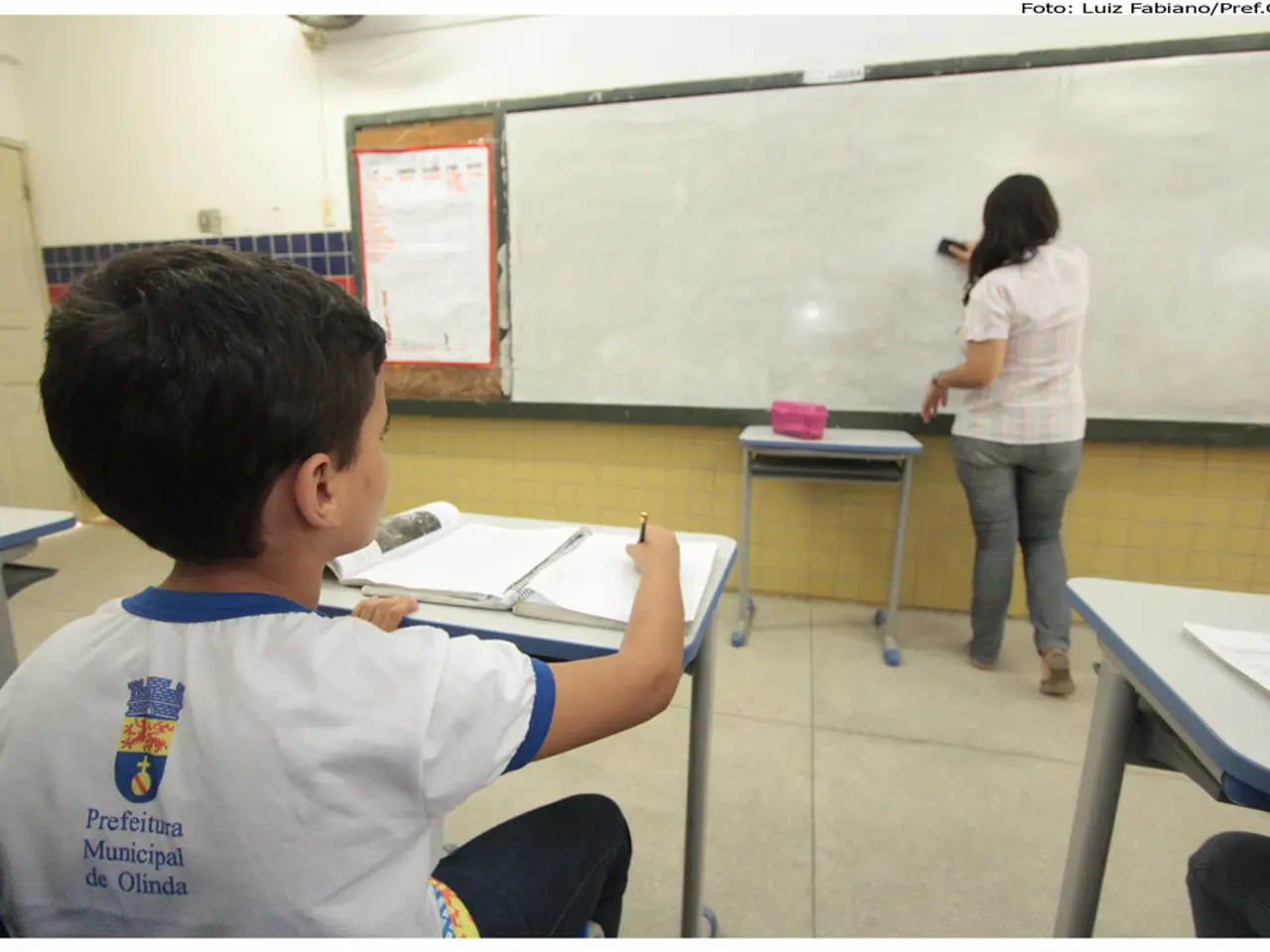Enhancing scholastic knowledge through mental exercises: Could it enhance education?
In a groundbreaking review of over 400 studies, the UK's Education Endowment Foundation has delved into the effectiveness of cognitive training programs in schools. Among these studies, a 12-hour working memory training program, tested on 572 German schoolchildren aged 6-7 years, showed significant improvements in working memory capacity up to a year after the training, with some children even having a 16% higher chance of entering an academic track at secondary school three years later.
However, the landscape of brain training for children is complex, with mixed and cautiously optimistic evidence emerging from current research. While working memory training can yield improvements on trained tasks and related cognitive functions, such as mathematical reasoning, the evidence for broader academic benefits remains weak or inconsistent.
Experts agree that personalized, attention-focused cognitive training combined with direct teaching of working memory strategies is the most promising approach for improving working memory and related academic skills in children. This approach emphasizes core attentional control, measures progress with objective neurophysiological tools, and tailors difficulty based on baseline cognitive abilities.
One such program, the publicly available app Nuroe, has shown promise in strengthening children's core learning system in the brain. However, it's important to note that simply using generic brain training games is unlikely to produce broad academic benefits without these elements.
Thomas Perry, a social scientist and education researcher at the University of Warwick, UK, has expressed doubt that doubling children's working memory will make them suddenly superintelligent. He highlights that critical thinking skills are based on knowledge built up over time and may not necessarily translate to other subjects.
The pandemic has taken a toll on children's cognitive skills, with declines observed in memory, attention span, and flexible thinking. Children from poorer socioeconomic backgrounds have been disproportionately affected by educational disruptions during this time. Tailored brain training, combined with explicit strategy teaching and attention-focused mindfulness activities, may help narrow these gaps by building foundational cognitive control.
Despite the promising findings, Perry stresses the need for large-scale efficacy trials to verify the study's results across different schools and teachers. He also notes that there is no critical body of studies to conclusively say that working memory training is a good thing to teach students or how to do it effectively.
In conclusion, while brain training shows potential, particularly when it is part of a precision, multi-component intervention, further rigorous studies are needed, especially focused on long-term academic outcomes and socioeconomic equity. Brain training programs should not be viewed as a one-size-fits-all quick fix but rather as a tool to support and enhance children's cognitive development when used thoughtfully and strategically.
The world of education-and-self-development has embraced the potential of cognitive training programs, as evidenced by the UK's Education Endowment Foundation's review of over 400 studies. However, these programs may not provide broad academic benefits, and their long-term effectiveness across different socioeconomic backgrounds remains uncertain, as highlighted by social scientist Thomas Perry.




